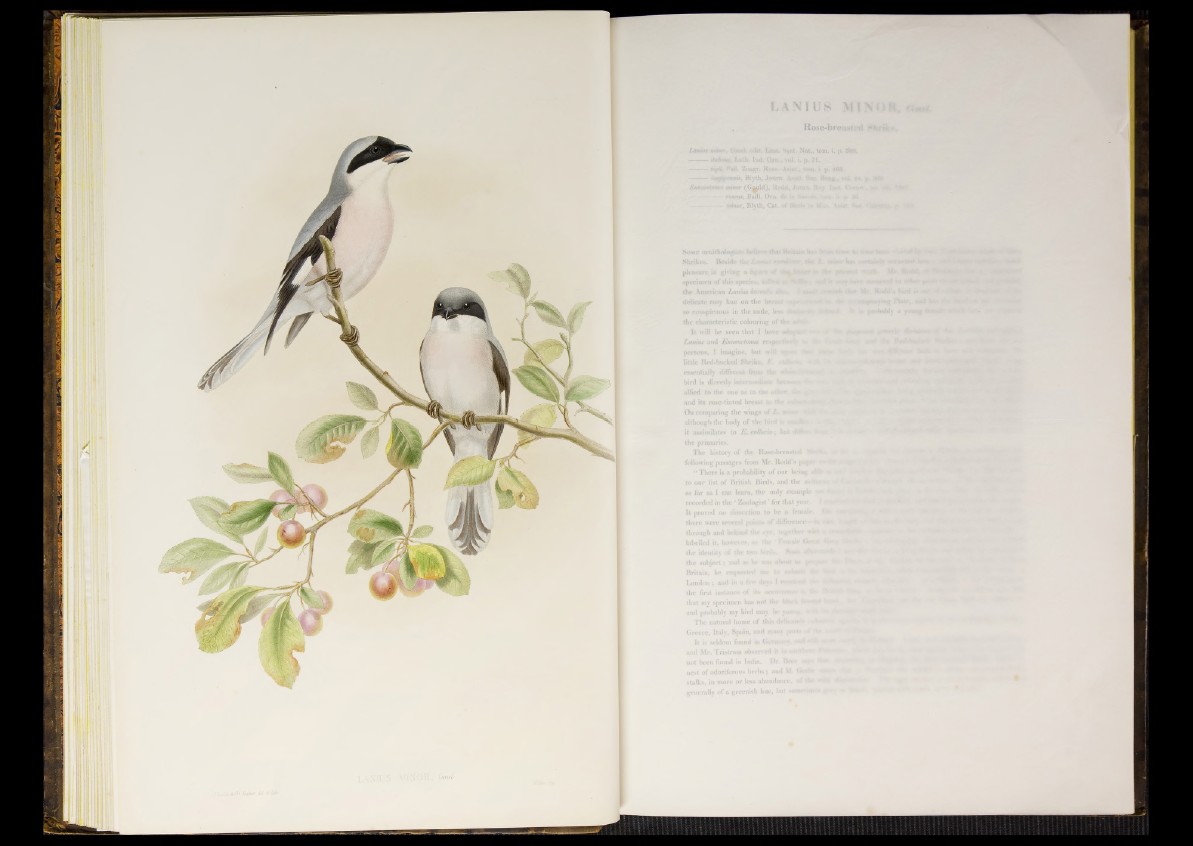
LAN I'US
Rose-bi
Lamm minor. Urine't. e d it. Lmn. S y st. Nat., tom . i.
— friHp^ntnir Blyth, Journ Awai Soc Sevxg
Etm&cttm* minor (G ^ ld ) , Kcdd, Jtwtra. Roy- is
— rosetu, Baill. Ora. de U Sa-vota. tom.
- minor, Blyth, Cat. of Ihrd* 1« .
Some ornithologist* WJw*w that h rin u s ha?
Shrikes. Beside the Lamm ?:h*
pleasure., in giving a
the American Lanius bonmm >■$&.* i
delicate rosy hue on the h w n t . v
so conspicuous in the male, less c -. ;.
the characteristic colouring of the « in k
It will be seen that I have adopt* ?- v
Lanius and Enneoctonus respeeth'*^
persons, I imagine, bat will ■*%
little Red-backed Shrike, A ¿«An*
essentially diflerent from «hr
bird is directly inttin.Hwi»«tc
allied to the one as to the o tW v eh
and its rose-tinted breast to the «iAwmn
On comparing the wings of L . mime
although the body o f the bird is sa
it assimilates to E , eoUuno; but <6
the primaries.
The history o f the Rose-breasted Si
following passages from Mr. Rodd’s p y ' -
“ There is a probability o f our being .v
to our list of British Birds, and the aril
as far as I can learn, the only example
recorded in the ‘ Zoologist ’ for that year.
I t proved on dissection to be a female,
there were several points o f difference—«
through and behind the eye. together wh
labelled it, however, a* »he Female (w i
the identity of the two w n » . Soon a
the subject; and as be was atNiut to p
Britain, he req u srtw ®* to
London ; and in a tew days I *w im *
the first instance of its occorrwwr t*i
that my specimen has not the bosei
and probably my bird may be youu»
The natural home of this dm'»W*
Greece, ltalv, Spain, and many part« <•<
It is seldom found in Germany, and
and Mr. Tristram observed it in wwifwi
not been found in India. Dr. Bn*- m#*
nest of odoriferous herb s; and M. Gerwt
stalks, in more or less abundance, of